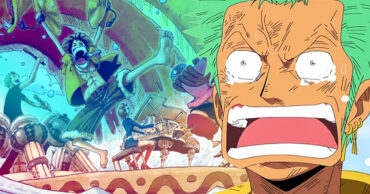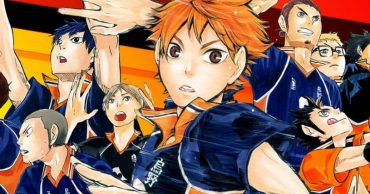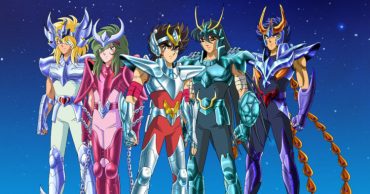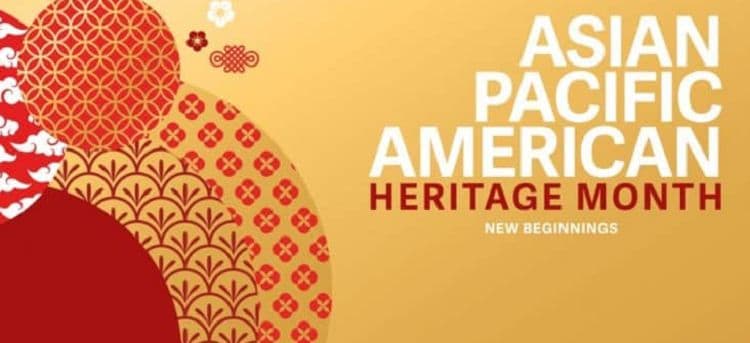
We have a global problem that spans not only anime, but the entire entertainment industry itself, and that problem is representation. In celebration of Asian-American and Pacific Islander Heritage Month, I got a chance to sit down and speak with a few incredibly talented actors in the anime industry, including Emi Lo (Higurashi no Naku Koro Ni – GOU, The Legend of Hei, Appare-Ranman), Apphiya Yu (Assassination Classroom, Dragon Ball Super, Dr. Stone), and Shawn Gann (My Hero Academia, Dragon Ball Super, Borderlands 3.) We took our time discussing how representation in the industry has changed in recent years, but also where it still needs to improve. So, let’s hear what they have to say about Asian-American representation in anime, as well as other entertainment mediums!
Background
Before we begin, I feel that it’s important to get to know who we’re hearing from, so let’s get a bit of background on each of these wonderful actors:
Emi Lo
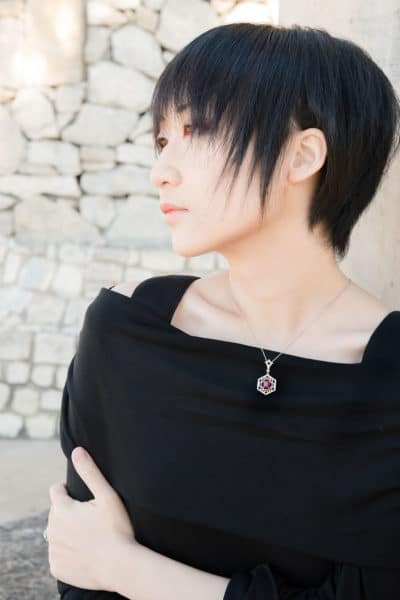
“Emi Lo is a Taiwanese/Chinese-American voice actress based in Dallas with remote recording capability. She is most well known for playing Rena in Higurashi no Naku Koro Ni – GOU, Rinku in D4DJ: First Mix, Hei in The Legend of Hei, and Hototo in Appare-Ranman! Though she started her life as a classical pianist, she was always active in the local theater scene and made sure to include acting courses in her curriculum even throughout her graduate studies. In addition, she is very passionate about animation and video games, as they have been an integral part of her life since she was young and visiting Taiwan.”
Apphiya Yu
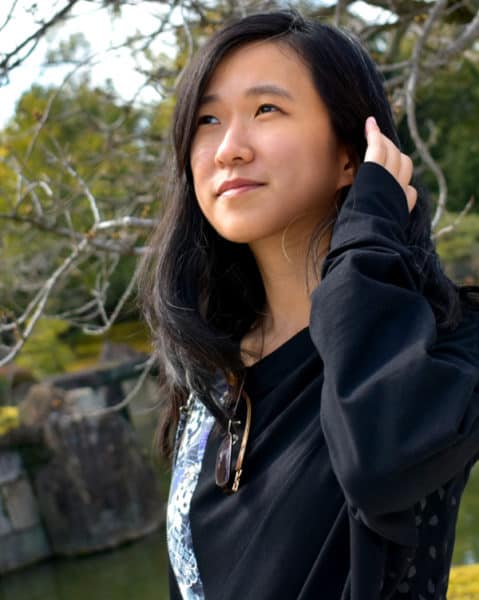
“Apphia Yu has been working in anime and video games since 2008. The first series she directed at Funimation was Assassination Classroom. She’s since gone on to direct The Disastrous Life of Saiki K, Classroom of the Elite, and The Quintessential Quintuplets. You can hear her as Hat Kid in the video game A Hat in Time, as well as a handful of other video games.”
Shawn Gann
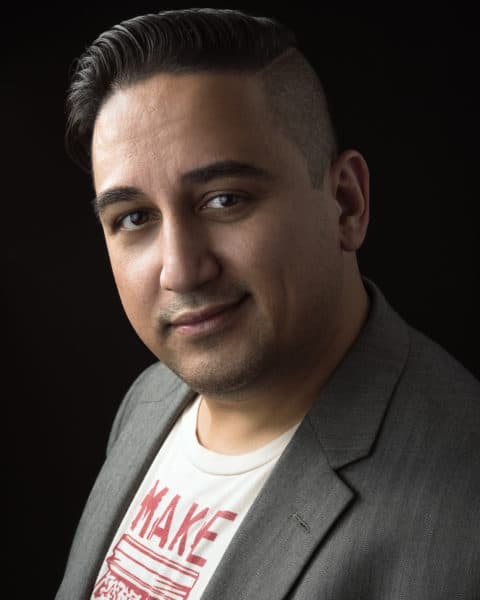
“Shawn is a proud Filipino-American who has voiced roles in My Hero Academia, Dragon Ball Super, Attack on Titan, One Piece, Fruits Basket, Radiant, Ensemble Stars, and many others; also, he has ADR directed for Sakura Quest, Radiant, Appare Ranman, Horimiya, Our Last Crusade, Ikebukuro West Gate Park, and Fruits Basket. In 2019, he was featured in Gearbox Software’s Borderlands 3 as mini-bosses, Archimedes and Judge Hightower. Recently, he wrapped filming for Amazon’s The Dark Places and Firelight Entertainment’s synchronized A Midsummer Night’s Dream. For most of his career, Shawn has been a theatre maker in Dallas-Fort Worth that has performed on most major stages, started several companies, and has been a producing board/company member with many others; he has also toured Nationally and Internationally as an actor which includes performing in Scotland’s 2019 Festival Fringe in Edinburgh.”
What has been your experience as Asian-American actors in the world of anime? Do you feel that Asian-American actors are treated equally in the industry?
Shawn: “Well, it’s kinda funny as far as the dubbing industry is concerned, for many years I would say no, they haven’t been treated as equally. It was a pretty predominantly White industry and a lot of the products were mainly localized to being in America, so that was the thought behind it, to essentially gentrify anime itself – and the product itself – and that was the way it was for many many years. If you were to ask me about the way that things are going now, I’d say that representation and equality is on the way up and you’re finding a lot of Asian actors and performers finding a wider audience and finding a connection through that representation. So the flip is there and – not to give too much of my age away or anything – but I’ve been doing this since the early 2000s, either as a performer, or a voice actor, or some kind of artist, so I’ve got to live through and see that change happen in my time.”
Emi: “Yeah, I think it’s gotten better, it’s still not as great as it could be. I feel like a lot of times, even with the diversity and representation push, Asians are still considered…White? Like Asian characters and stuff like that are not treated the same as other POC [People of Color] characters, so while there has been more of a push, it honestly could go further.”
Apphiya: “It depends honestly. I mean, Asians aren’t exactly a monolith, we range the gamut in terms of where we’re from, our culture, and our skin tones, and to be completely honest, someone who looks like me is going to get more options than someone from Southeast Asia, like I’ve even had talks where someone said ‘Can you name Asian actors?’ and I’ll name some from Southeast Asia or India, and they’ll be like “Oh, I didn’t mean like Asian like that…” like listen, you said Asian. I don’t know what to tell you.”
Shawn: “I am the person that people will name and nobody has any clue – first of all, they don’t really associate me with being Asian or Southeast Asian. I am Filipino, I was born in the Philippines, and I never get looked at it that way. My delivery of speech, the way I kind of go about my life – I mean, I was raised by a White father, so a lot of that comes from that, a lot of the way I present myself, the way I try to exist in the industry or any profession that I’m in, is very much modeled after a Western ideology, as far as how I should be, and how I should present myself, and what that will do for me. I think part of the representation part that Emi had mentioned earlier, on the Asian aspect of it, is I think when it gets more specific, like you have an anime that deals with specifically Chinese fables or history, and is specific to that culture, I think a lot of the times it gets glossed over that maybe we should have Chinese people do that sort of anime that have that background and represent that. Anime is obviously a very wide spectrum, because Japan and Korea, and everywhere else that produces it wants to have a wide audience for it, especially for localizations and stuff like that. I think that sometimes when it gets specific, it gets kinda left and forgotten that those characters are being specifically represented on purpose, and I think that’s where any of us are coming from on the POC aspect of it, where you have a Black anime character, we will – especially nowadays, it wasn’t always that way – go out of our way to make sure that we audition Black people for those roles and make sure they’re represented properly, or if it’s an Indian character, we want to do that as well. Outside of anime, of course, The Simpsons – they stopped the Apu character specifically for that reason, and recognized that. I think that anime as far as representation on specific cultural things, we’re still a little behind on that.”
When you go to audition for a role, do you feel the need to present yourself in a certain way that might give you an advantage over other actors?
Shawn: “Apphiya and Emi might have better experience with that, because my background, of course, is basically presenting almost as White, and most people read me that way. I think that even having a name like “Apphiya” and “Emi” – who’ve almost Westernized her name as well, but usually you can see it a little better, and they can represent themselves better, so for me it’s not a change, I wish that I didn’t have to be that way, but I’ll let them speak for themselves on that.”
Apphiya: “It depends. When I started – I’ve been doing this for 13 [years] officially at this point in time, I did have to change a lot; there’s a certain level of assimilation one has to do to be accepted into this and even now, for the most part, there still is, and in the push for authenticity in the past years, over the course of my career, even when someone wanted something distinctly Asian, it was always Asian in the way the writer understood it, so I have had to pull out accents that are not authentic, because they don’t want the authentic one, because either they’re afraid it’ll sound too insulting – which, okay sure, if you think the audience can’t handle it then sure, go for it – or it’s what they think an Asian accent is supposed to sound like, and they wanted me in there, so that they could be authentic and represent correctly, so I appreciate that they didn’t cast a non-Asian to put it on, but also the fact that I still had to conform to what their idea of what it is, instead of just bringing whatever my own personal experiences are to it.”
Emi: “Yeah, I mean I haven’t been doing this for nearly as long, but I guess I just got a little bit luckier in that I started when it was a little bit more of an open thing, but I honestly don’t even know what to say about it. I mean, there are definitely things that you can’t really talk about, I feel like being a POC, often you can’t talk about the POC issues, because people will think that you’re just talking about yourself. That can be a problem, especially now with the AAPI after the murders – the hate crimes in Atlanta – I did notice especially on Facebook, a lot of my Asian friends – especially after the first few days – saw that it was Asian people pushing it, and they felt like it would be ignored if it was only Asian people pushing it. So you kind of feel like if I’m the only one talking about this stuff, then maybe I shouldn’t talk about this stuff, because I don’t have as much say, and I think we’re raised in many Asian cultures to be quiet about this stuff; you don’t want to be intrusive, you don’t want to bother people, you don’t want to cause trouble, and so it’s very difficult to bring stuff up, and I think that’s another reason why there’s been such a hard time with Asian representation, because in order to get that out there, we have to adopt a culture or a method that we’re not as used to, and there’s a little bit of that clashing in there, we have to be louder, we have to realize that it’s okay for us to take up that amount of space.”
Apphiya: “Yeah, it is a part of many Asian cultures – I just said Asia’s not a monolith, but now I’m gonna be like ‘in a lot of Asian cultures’ – you know, don’t complain, put your head down, do the work, and so often times we don’t. Often times we get by well enough that we don’t have to, and that in and of itself is a privilege, but for the people who are with us, for those who come after us, who can’t get by the same way we do, it’s difficult.”
Now that it’s becoming more of a widespread push for equality across all POCs have you found it any easier to speak up for changes that might need to be made?
Emi: “I think there’s still a lot of that disconnect. It’s still really hard, because you still have the same fears, and there’s still that ingrained “Don’t be loud” and like I was saying with by Asian friends on Facebook, it’s like we’re yelling, but a lot of times we’re just yelling at ourselves, we’re just yelling to people who have the same problems, and I think that comes with the whole thing about not being treated the same as other POC, because of the whole “model minority” thing. People were attacked just the other day in San Francisco; people were bludgeoned with bricks and people just stood there. It’s still not treated with the same amount of shock that it would in any other circumstance, so when we see that kind of response, it makes us more nervous about even bringing up small things, because if they’re not treating something like Atlanta like a hate crime, something small and insignificant where no one’s getting physically hurt – they’re not going to pay attention to that.”
Shawn: “I also think you’re getting a pretty good representation as far as standing in the industry and how long we’ve been a part of it at the different levels of approach to it. Like I had mentioned earlier, I’ve been able to grow and do it and see certain changes and certain ideologies come forward. For me, I’m in a position now where I’ve been doing it long enough to where I’m stable enough in my socio-economic status that I’m not afraid to speak about those things, I’m not afraid to ask for proper representation or to put that in the forefront of any cover letter or idea that I push forward, and what I see in a bunch of younger generations coming up is a lot more proactive activity as far as going to protests, marching, being out there, labeling themselves, making sure that people recognize that they’re in a place that their voice should be heard now. You can see it in Disney, you can see it where they’re starting to prop up a lot more Asian animators, and tell those Asian stories, but also being where I’m at and seeing where things are going, I can see how difficult it is for somebody just starting in the industry like Emi, where she wants to make her bones, she wants to make people happy, she wants to show people that she’s a talented individual and move into the next phase of her career, but also not wanting to rock the boat, because you know that we have a very difficult industry as far as entertainment is concerned; people want friends, people want to work with people they’re comfortable with, people don’t want to make themselves uncomfortable, directors (and producers) don’t want to put themselves in positions where they may be controversial, or that they’ve hurt people that might help them out. It’s a delicate balance and it takes having experience and takes getting to certain points in the industry without having too much fear – too much anxiety – and Apphiya, I think, has been doing this much longer as far as behind the scenes and being in the VO world as a known name that I know of, and I imagine that she’s got her own perspective being in that niche in her career as well.”
Apphiya: “I mean I confess, I’m pretty cynical these days about ever bothering. When I started out, I would speak out and I tripped at the starting line, in terms of my career, for doing that. I didn’t start out being smart enough to assimilate – it came later and I went ‘Ah, crap, I’ve got to get on board with this’ – and even now there’s a lot of cynicism behind ‘is it even worth saying any of this – is it even worth pointing out even the bare minimum of can we pronounce names correctly?’ So many times, so many clients have condescendingly told me ‘Well, it’s not like that’ or ‘The audience doesn’t care’ or ‘Well I hear it differently’ so I think it’s easier to speak up in these spaces now – you’re less likely to get punished for it – but as an old bones human, I don’t know how much it’s actually still changing.”
Emi: “Yeah, because there are some shows which you do see some change in there, some people trying to make steps, but then like there are still shows where names are being said inconsistently and incorrectly within the same scene, very obviously Asian characters who will wear like robes or special garb, or like in a setting where international will still go to White people, it’s still happening. While there are some people making some changes, other people just don’t care.”
Shawn: “Like those people that used to make those choices that were offensive or ignorant – it’s not like they’ve left – a majority of them are still in the same positions that they’ve always been, I think that the difference now – and I hope it relieves some cynicism – is that certain people have made efforts to be more inclusive and to provide that representation and you can only hope that they themselves get to move into better positions to be better represented and to be pulling along people that want to be a part of it. I think we have a few even within our current studio setup that are really fighting for that sort of thing, and you have to take advantage of it when it’s there and roll with it when it’s there. It can come to a stop – I’ve seen it come to a stop before – but right now I feel, at least from my perspective and what I’m trying to accomplish, I feel like I’m making strides, so I hope that helps people feel better.”
Apphiya: “Yeah, to the credit of many of the people we work with – everyone is doing their best – and they’re learning really well, honestly the only reason that I got a Director position all those years ago was because a white guy went to bat for me really hard. He believed in me andhe fought when no one else did, and I know that’s why I’m here and I appreciate everything he did for me, but for me it still feels tough, because I imagine that if I ever had a gig where I had to use a British accent, someone would go after me if it wasn’t correct, and they would be right to, so what would the difference be between saying a word in Japanese? Equality is the push – that’s all I ask for – that’s the push, and I would work my butt off to make sure I land the accent correctly, and if I don’t then I accept that this isn’t the role for me, and I just hope that other people work really hard on other languages and other things that they can’t say, but you can learn, and I know I say it’s all I ask for, as if it’s an easy feat, and it’s not and I understand that. I know it’s hard, but I still ask for it.
Emi: “I mean, sometimes it could be, because there are some shows out there that have words in different languages – multiple different languages – and they’ll put the effort into looking up how to pronounce the word in French, or in Italian, but then a word in an Asian language will show up and then won’t put in the same effort when it’s the same: go onto Google, look up the word, and then press the speaker.”
Shawn: “One hundred percent…these Eastern European names – anything in Game of Thrones – everyone will make the effort to say it right and learn the intonations, heck, they’ll even learn an entire new made-up language with an Eastern language-like slant to it, but the moment you try to get them to pronounce some Southeast Asian name, it’s like “Ugh, why am I even trying,” you know – that sort of thing, and a lot of Asians end up anglicizing their name, or taking on nicknames, just so they don’t have to have that conversation over and over and over again, and like Apphiya, I feel that same pain, because I’ve had a White woman come up to bat for me and give me the opportunity that I’ve had today. We’ve known each other a very, very long time, so this opportunity really came out of my interest for it, but she’s gone to bat for me and made a lot of strides for my career and I’m very pleased that she did so.”
Yeah, it’s interesting that you point out that people will go out of their way to learn a made up language, so that they can pronounce some names, but they won’t put in the effort to learn a real language to learn someone’s real name. That just blows my mind. Shawn and Apphiya, you both have experience working on anime as well as video games, lending your talents to several different forms of entertainment, is there anything different in the way that these mediums are produced, as far as voice acting goes? Is one any easier than the other?
Apphiya: “Well, with video games – video games are sometimes dubs too – but oftentimes, you’re coming in with just an image of the character and a vague idea of what the client wants them to sound like, so you’re sort of part of building the character and their sound and what’s going on. Video games are also a lot more – I don’t want to say slapped together, but I’m a programmer, I’m allowed to – but things change a lot in the production process. When you’re in anime, when we’re on this end of the anime, the production’s essentially done, so not a lot changes, where in video games, things are very much in flux, things can change based on the sound you bring to it, or as things change they can decide that the sound you brought to it is no longer what they want, and you can get recast, and that happens way more frequently in video games than it would in anime.”
Shawn: “That’s my experience too, video games require you to go in, sometimes even without an image, and just go off a description and create whatever character you think might connect with what they’re imagining, and you spend a lot of time shredding your vocal chords, because you have to cover a lot of scenarios. Getting it wrapped back into, I suppose, the topic is the access in video games is a little different, unless you’re talking about something like Final Fantasy, or some other Japanese product that has a long history, you don’t know the NDAs; the secret nature of video games are such that you can’t really get after a game, or you can’t really get after representation in games until it’s almost released, you can only critique it once it’s out there for sale, or you see trailers and you see who is associated with those characters, so it’s a tougher industry in that sense. I am not as familiar with it as far as its inner workings and how to be involved on a more constructive level, but I’ve put in my two cents with people who I know that have worked in that industry, I’ve tried to be more connected to it, honestly all I can really comment on a really intelligent level is on anime, VO, the theater world, and acting and stuff like that in general.”
So for my last question, this one’s for everyone, what is your favorite part about working as a voice actor, do you have a favorite project that you’ve worked on that you feel really captures all of the representation that should be included in an anime or any other medium?
Apphiya: “Honestly, I don’t think I’ve found that white whale quite yet, to bounce off the first part of your question, I like being a voice actor because your opportunities open up. In fact, the reason I chose voice [acting] in the first place, was because I was doing film and television for a while and I remember walking into a room for an audition, and I knew that the cast was supposed to be siblings with the same parents, and I looked at everyone else in the room and I realized that I don’t look related to anybody here. I know that experience is not unique to me, but in that moment, I realized that this is a fight that I’m not sure I can win, whereas when you get into voice acting that matters less. How you look still actually affects casting, but not in the same way, so my ideal for voice acting is that these opportunities are available to everyone in an equal way. I think at some point in time, we’re going to have to have that, we’re going to have to make sure that the casting pool [and] the auditions are open to more people, that we’re listening to more people than just the ones who are easiest and closest to us, and so far I don’t think that I’ve really been able to do that.”
Emi: “Yeah, same reason I like it, because I just get to play with so many more types. I had wanted to be a film actor when I was younger, and my parents were basically like ‘yeah, you’re too ugly for that’ so with voice over, I can be a little boy, or even a slightly older boy, I can be the cute girl, or not the cute girl. It opens up the horizons so much, and you just get to play with so many different types, you’re not stuck in the girl next door stereotype, or the guy who never gets the girl stereotype, or something like that, based on just how you look. You might be stuck on it, because you played a famous character and they were that kind, but that’s a little different.”
Shawn: “My history with art in general is I’m very hard headed, I thought I could make a living 100% just doing theatrical work, and through my 20s I did that, and VO was very much a side project for me, and just a way to make a few bucks here and there. I would do commercials and stuff like that just to have something, that part was the work, theater was the dream and I would tour and do whatever. I discovered in these last few years with VO that there are great opportunities, I have had a great chance and a great shot at many of them, and as far as representation is concerned, in the anime itself, I feel very fortunate. I’ve been in a couple of seasons of Radiant, which is actually a Manfra, which is a manga made in France and it’s the first one that was adopted by a Japanese studio, and that covers a lot of topical things as far as xenophobia, racism, being ostracized, and we made a lot of effort to show diversity in that, and I think that was a good stepping stone for what myself and Caitlin Glass have been doing these past few years, which is grabbing these shows and making an effort to put people who haven’t had certain opportunities in the place to at least get a shot at them, and now with what we’ve got going on with a new show that’s rolling up, we always keep that in the forefront of what we’re doing with how we put shows together and how we build our catalog of performers. As a performer for me, I look at that as a fantastic thing, and as a Director, I feel proud of the work that we do in that sense, and I hope that we can continue to do that, maybe I’m in my own little bubble right now, but I feel like we’re doing good work and we’re doing our best to get it out there and that’s something I hope to continue.”
Thank you so much to Emi, Shawn, and Apphiya again for taking the time out of your busy schedules to sit down and talk to me about the issues in Asian-American representation we see in the anime industry, as well as thank you to Funimation’s David Lujan for reaching out to put the four of us in touch! This was a really wonderful experience across the board, and I hope that we speak again soon.
As you can see, while Asian-American representation and equality has improved throughout the years, there are still many changes that need to be made, issues that need to be resolved, and wrongs that need to be righted. We are a far from perfect society, there is no doubt about that, and the only way that we can do better is by standing up for inequalities that we see every single day, standing up for those who are unable to stand up for themselves, and taking it upon ourselves, each and every one of us, to ensure that everyone is treated as equals, regardless of ethnicity.
 Follow Us
Follow Us
